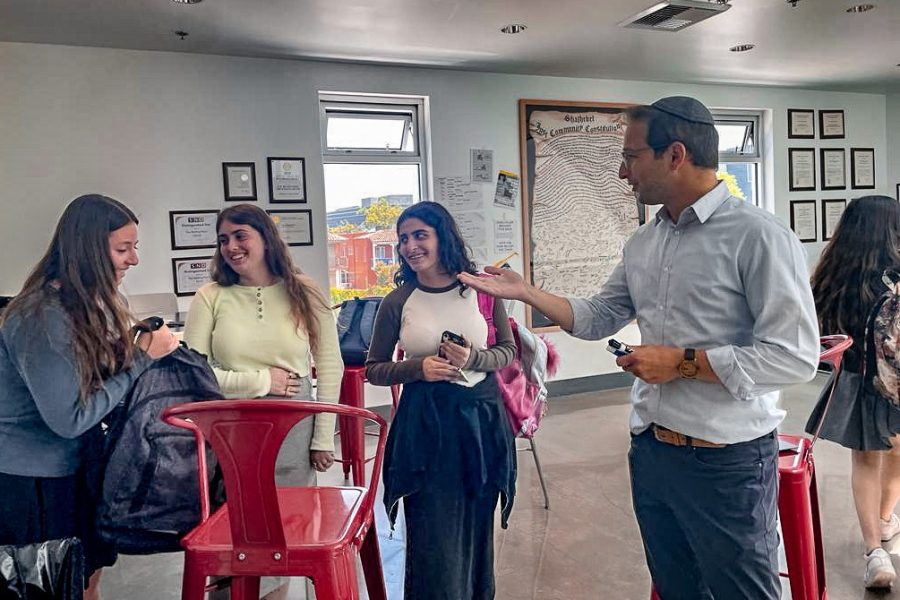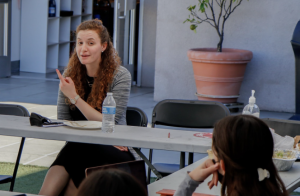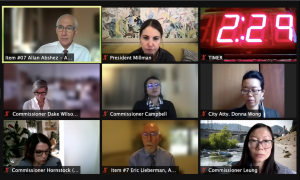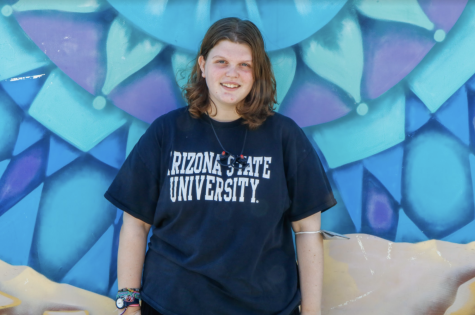Surprise challenges from friends help students memorize Mishna
GAME: Rabbi Ari Schwarzberg, whose 10th grade Advanced Tanach class played the Mishna Bomb game, offered extra-credit points to anyone who memorized a Mishna.
May 26, 2022
On Feb. 1, Dean of Students Rabbi Ari Schwarzberg posted eight mysterious words to the Just Community Schoology board:
The First BOMB is about to be dropped….
As alarming as it sounded out of context, the community soon learned that he was referring to “Mishna bombing” – a program being piloted in his 10th-grade Advanced Tanach class.
The Mishna is a Jewish text commentary on the Torah or the Talmud, usually a short paragraph in length. The new program is a game designed to make learning Mishna fun, and to encourage the learning of oral Torah.
It starts with two or more people chosen as team captains, who are responsible for memorizing a Mishna listed on a “Mishna bomb card” and repeating it to whoever is designated the “grand master” of the program.
Once the captains are confirmed to have memorized their Mishna, they each “bomb” someone else with the same card in some unexpected way. The responsibility to memorize the Mishna is then passed to that person, who passes it to someone else, and so on.
The game is given a set end time, and whichever team has the longest thread of Mishna-bombing by that time wins. In the 10th-grade game, Rami Melmed and Zane Mendelson were the captains and Rabbi Schwarzberg was the Grand Master.
As incentives to play the game, Rabbi Schwarzberg offered extra-credit points to anyone in his class who memorized their Mishna, and promised more extra-credit — plus merchandise from Shtark Shirts, an apparel company with slogans taken from Mishna on their items — to the winning team.
“On day one, Rami put the Mishna bomb card in my Tanach,” Rabbi Schwarzberg said. “And as I’m flipping the pages, all of a sudden the Mishna bomb card fell out and then, boom — I’ve been Mishna bombed. And now it’s on me to learn and memorize that Mishna.”
The class found various unique ways to surprise each other with the Mishna-bomb card as their game went on – for example, Ezra Helfand pretended to fall over and had the card in his hand when Zion Schlussel went to help him up, and Elishai Khoobian bombed Tomomi Shaw by putting the card in her phone.
“It’s a very different, creative way to learn,” said Elishai.
Rabbi Schwarzberg was unsure about whether his students would engage, but said at least 75% of the class had been bombed by the end of the game in mid-February, with Zane Mendelson’s team in first place.
Shira Elyaszadeh particularly liked the game aspect.
“There was all this anticipation, like ‘what’s gonna happen next, who’s gonna get bombed’,” she said. “It was a great bonding exercise.”
“There’s been heated competition and people yelling, ‘Oh, Schwarzberg’s favoring this team and not the other team,’” Rabbi Schwarzberg said. “So all the good shtick that you want to be associated with this stuff.”
While Rabbi Schwarzberg intended for Mishna bombing to stay within the one class, some students expressed interest in a version with more of Shalhevet involved.
“I think it would be interesting to see how far it goes,” said Zion. “In a small group it is easier to control, but in a big group it gets hard to keep track.”
The idea for Mishna bombing came from Shalhevet alumnus Boaz Willis ‘16, now a college student in the joint program of Columbia University and the Jewish Theological Seminary in New York. Boaz, who is also the creator of Shtark Shirts, gave Rabbi Schwarzberg the idea as a way to implement Torah shebaal peh — the oral Torah, or Talmud into daily life.
In an interview, Boaz said he was inspired by various internet trends and wanted to start something new for his Shtark Shirts line that involved a chain of surprising people. He began by making what he called Mishna bomb cards, each containing a QR code that leads to a Mishna.
He then worked on it with a friend at Princeton University, Yonit Krebs, who’s active in the school’s Orthodox community. The game was held for the first time in 2021 at Princeton during the Omer, lasting three weeks and ending with 30 people Mishna bombed. When they did it again in December, the number rose to 50 people.
“Fifty people engaged and active in this was a smashing success by my standards,” Boaz said. “And I think by Yonit’s as well.”
Boaz expects the program to be held later this semester at Columbia University with their Conservative and Orthodox communities. An acquaintance of Boaz’s at University of Central Florida has also reached out about hosting it with Yehudi, a Jewish organization there.
“If the things that I’m working to create will land well in the Shalhevet community, then hopefully I can have success in broader communities also,” Boaz said.
Rabbi Schwarzberg said Mishna-bombing is one in a list of many programs at Shalhevet intended to encourage Torah learning for its own sake, without any fear of bad grades.
“Whether that’s a Mishmar program, whether that’s Rabbi Tsaidi’s night Seder program, whether it’s a Shabbaton or Mishna bombing,” said Rabbi Schwarzberg. “These are all different ways for people to engage with Torah in a way that is much less threatening than a classroom setting.”
The Mishna-bomb cards, as well as the rest of the Shtark Shirts product line, are available at https://shtarkshirts.com.


















